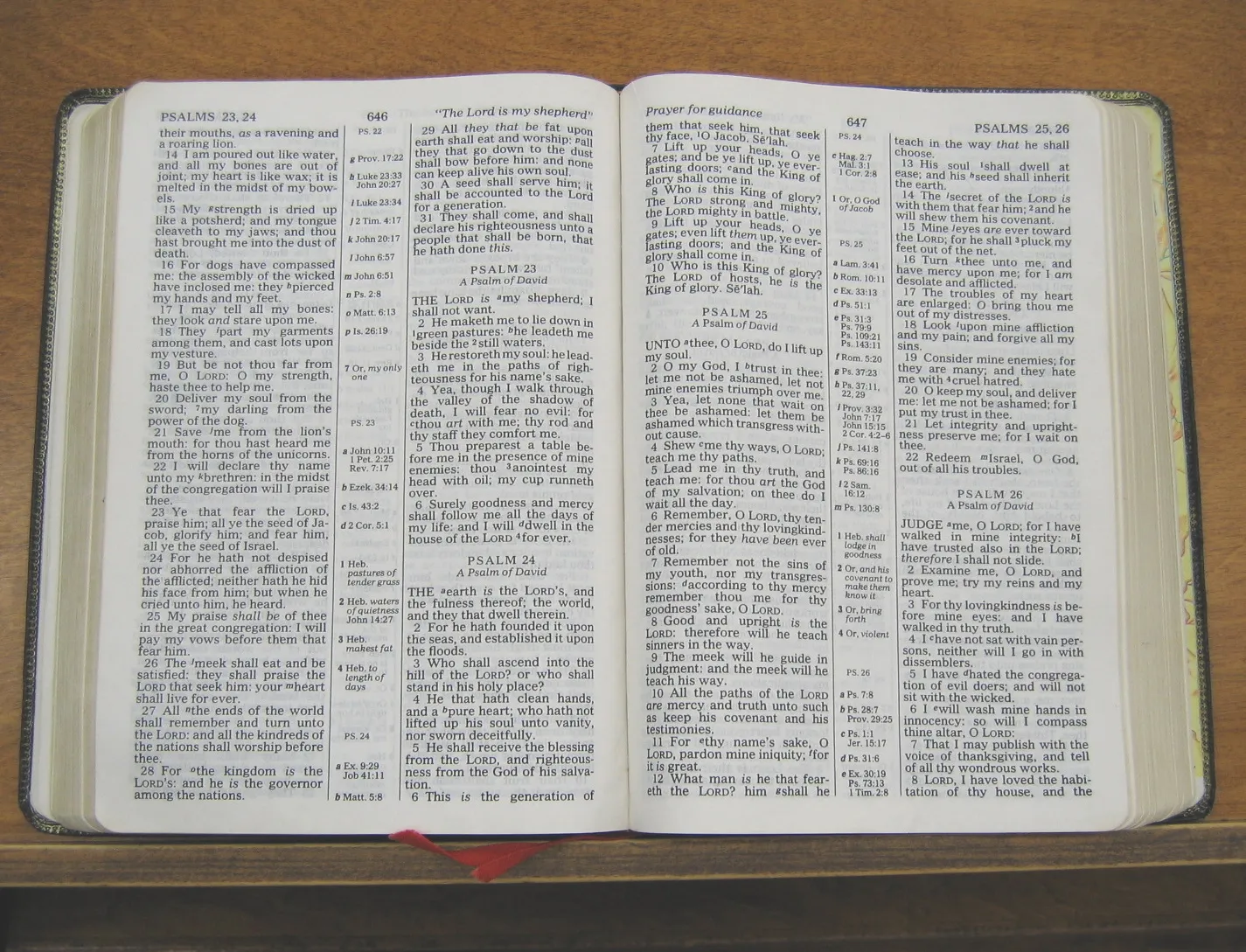What does the Bible say about stashing away earthly treasures? It’s a question that’s been asked time and again. The good book has a lot to say on this topic, but let’s delve into some key points.
The Bible, specifically in Matthew 6:19-21, cautions against hoarding material wealth here on earth where it can be easily destroyed or stolen. Instead, it encourages folks to store up treasures in heaven – a place impervious to decay and theft. “Do not lay up for yourselves treasures on earth… but lay up for yourselves treasures in heaven,” says the scripture.

But what does this mean practically? Does it imply we shouldn’t strive for financial stability or save for future needs? Not at all! Rather, these verses are meant to highlight the fleeting nature of earthly possessions and emphasize that our ultimate focus should be on spiritual growth and heavenly rewards. In essence, while it’s okay to have material possessions, they shouldn’t possess us.
Understanding the Concept of Treasures in the Bible
Deep within its pages, the Bible offers many insights about treasures. It’s not just talking about gold and silver, mind you. The term “treasure” here is often a metaphor for anything that we value highly or pursue with great effort.

For starters, let’s look at a well-known verse from Matthew 6:19-21. Here, Jesus advises against hoarding earthly treasures where moths and rust can destroy them. Instead, He encourages storing up treasures in heaven where they’re safe from decay. This doesn’t mean we shouldn’t save money or enjoy good things in life! Rather, it’s a call to prioritize spiritual wealth over material wealth.
Now how does one store up heavenly treasure? The Bible suggests several ways – helping those in need, living righteously and sharing God’s word are among them. In fact, every act of kindness and love for others adds to our heavenly bank account!
The book of Proverbs also gives us some food for thought. It says wisdom is more precious than rubies (Proverbs 3:15). So while worldly riches may seem desirable, true treasure lies in godly wisdom.
And finally consider this – the Bible underscores that God Himself is our greatest treasure (Psalm 16:5). When we seek Him above all else, everything else falls into place!
Here are few key takeaways:
- Earthly treasures are temporary; Heavenly ones eternal
- True wealth lies not in material possessions but spiritual richness
- Wisdom is more valuable than any earthly riches
- God Himself should be our ultimate treasure
It doesn’t get clearer than that! Remember these principles when you feel enticed by shiny objects of this world. Keep your focus on what truly matters – God’s kingdom and His righteousness.
Biblical Passages on Earthly Wealth and Possessions
Dabbling into the Good Book, you’ll find numerous scriptures that address the topic of earthly wealth and possessions. One of the most impactful is Matthew 6:19-21, where Jesus himself advises against hoarding earthly riches. He says:
“Do not store up for yourselves treasures on earth, where moths and vermin destroy, and where thieves break in and steal. But store up for yourselves treasures in heaven…For where your treasure is, there your heart will be also.”
This doesn’t mean it’s sinful to have wealth or possessions. It’s about priorities. If your heart yearns more for things of this world than for God’s Kingdom, there might be a problem.
The Bible repeatedly warns about the potential pitfalls of material wealth too! Just look at 1 Timothy 6:9-10:

“Those who want to get rich fall into temptation and a trap…For the love of money is a root of all kinds of evil.”
Here again, it isn’t having money that’s problematic but loving it—letting it become an idol.
Then there’s Proverbs 11:28 which reads:
“He who trusts in his riches will fall,
but the righteous shall flourish as a leaf.”
It seems pretty clear then that trusting in our own resources rather than relying on God can lead us astray.
So what does one do with their wealth according to scripture? The answer seems to lie in generosity! In Acts 20:35 we’re told:
“In everything I did, I showed you that by this kind of hard work we must help the weak…remembering the words Jesus himself said: ‘It’s more blessed to give than receive.'”
In summary:
- Matthew tells us not to hoard
- Timothy warns against loving money
- Proverbs cautions against putting trust in riches
- Acts encourages generosity
Each verse is a unique facet of the biblical perspective on earthly wealth and possessions.
Interpretation: What Does ‘Storing Up Treasures on Earth’ Mean?
Breaking down this biblical phrase, it’s quite apparent that it isn’t about hiding your gold coins or stockpiling precious gems in a secret cave. Instead, the concept of ‘storing up treasures on earth’ is a metaphorical one, steeped in spiritual significance. It speaks volumes about where one’s priorities lie.

Let’s dive into the Bible itself for clarity. In Matthew 6:19-21, Jesus cautions his followers not to stash away earthly wealth as they are susceptible to decay and theft. He advises them instead to accumulate treasures in heaven which are everlasting. The crux of His message? He nudges us towards focusing our efforts more on cultivating virtues and performing good deeds than becoming slaves to materialistic pursuits.
Material possessions aren’t inherently evil; it’s the excessive attachment and desire for them that can divert our attention from spiritual growth and genuine human connection. One might be inclined to ask – why then do we need money? Well, it’s a facilitator—meant to serve as a means for sustenance and fulfilling responsibilities rather than an end goal in itself.
A quick glance at Proverbs 23:4-5 further elucidates this point. It warns against laboring tirelessly just to become rich because wealth can disappear quickly like an eagle flying away into the horizon. It emphasizes that life ought not revolve around hoarding physical wealth but should foster wisdom, understanding, love—the true riches of life—a sentiment echoed throughout various other scriptures.
It’s essential though not to misconstrue this interpretation as an outright rejection of prosperity or success—it isn’t! Rather, it encourages balance between material needs and spiritual fulfillment. A wise man once said “money is a good servant but a bad master.” This adage resonates with what the Bible teaches about ‘storing up treasures on earth’.
Remember, it’s not about shunning the material world but mastering the art of using it without becoming ensnared by its allure. After all, isn’t life more than food and body more than clothing?
The Christian Perspective on Materialism and Wealth Accumulation

Diving right into it, let’s unpack the Christian perspective on wealth accumulation. It starts with a passage from Matthew 6:19-21 where Jesus advises not to store up treasures on earth but in heaven. He emphasizes that “where your treasure is, there will your heart be also.” This underscores the essence of value placement for Christians. It’s not about amassing worldly possessions, but rather focusing on spiritual growth and godly virtues.
Dissecting this further, materialism isn’t seen favorably in Christianity because it often leads to idolatry. Exodus 20:3-5 warns against placing anything above God which can include wealth or material possessions. There’s even an adage that goes “Money is a good servant but a bad master”. Essentially this means that while money isn’t inherently evil, it becomes problematic when it takes precedence over one’s relationship with God
Switching gears slightly, let’s talk about the parable of the rich fool in Luke 12:16-21. Here’s how it goes – A man had his barns filled with surplus crops and decided to build bigger ones to store all his goods, thinking he could relax thereafter since he had plenty stored up for years. But God called him a ‘fool’ because he would die that very night without getting to enjoy his accumulated wealth. Lesson here? Life does not consist of an abundance of possessions.
But wait! Doesn’t Proverbs 13:22 say “A good person leaves an inheritance for their children’s children”? Yes indeed! However, this doesn’t contradict the other teachings. In fact, it complements them by suggesting that wealth should be responsibly managed and used for good causes – like providing for future generations.
To wrap this section up:
- The Bible cautions against storing up treasures on earth
- Materialism can lead to idolatry, which is warned against in Exodus
- The Parable of the Rich Fool teaches that life isn’t about an abundance of possessions
- Proverbs suggests responsible wealth management and using it for good causes like providing for future generations.

There you have it folks! The Christian perspective on materialism and wealth accumulation. Stay tuned for more enlightening discussions in our next section.
Conclusion: Balancing Earthly Needs with Spiritual Priorities
As we wrap up this discussion, it’s clear that the Bible provides insightful guidance on how to balance earthly needs with spiritual priorities. Scripture doesn’t condemn material possessions outright; rather, it cautions against the dangers of placing too much value on them.
It’s important to remember that everything we have is ultimately a gift from God. The Bible encourages believers to use their resources wisely, not hoarding them selfishly but sharing generously with others in need. In doing so, they store up treasures in heaven where moth and rust cannot destroy.
The challenge lies in maintaining perspective and keeping our hearts focused on what truly matters. Earthly wealth can be fleeting and deceptive, while spiritual riches are everlasting. This doesn’t mean one should ignore their basic needs or refrain from enjoying the fruits of their labor—it simply suggests a shift in focus.
- Do not store up for yourselves treasures on earth… But store up for yourselves treasures in heaven. (Matthew 6:19-20)
- Command those who are rich…to do good, to be rich in good deeds, and to be generous and willing to share. (1 Timothy 6:17-18)
In essence:
- One shouldn’t let material possessions control them.
- It’s crucial to remain generous & share blessings with others.
- It’s all about finding balance—meeting earthly needs without losing sight of eternal values.

Remembering these biblical principles can help guide anyone towards a balanced life filled with both earthly contentment and heavenly reward.












